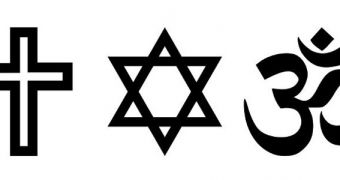In a study that shouldn't surprise anyone, scientists have established that religion plays a dual role at group level. It promotes understanding and cooperation, but at the same time makes it more likely for the group to engage in conflict with another one, of different beliefs.
The findings refer to all religions, not just major ones. “Sacred values sustain intractable conflicts like those between the Israelis and the Palestinians that defy rational, business-like negotiation. But they also provide surprising opportunities for resolution,” University of Michigan anthropologist Scott Atran says.
Within the group, physically demanding rituals are used to bind people together even more, and to make them unlikely to want out. By comparison, secular societies are more prone to see their members opt out, if the situation gets bad, e! Science News reports.
In a case study conducted in Iran, those who thought about the country's nuclear program as a divine right were more opposed to peaceful conflict resolution than those who thought the program was not inspired by God's will.

 14 DAY TRIAL //
14 DAY TRIAL //